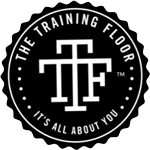When is it an eating disorder?
If you’re overweight, trying to shed unwanted pounds is certainly a step toward improving your health. But for people who suffer from an eating disorder, the desire to lose weight is an unhealthy obsession.
People with eating disorders may become dangerously thin or use extreme measures to lose weight. For example, those suffering from anorexia practice self-starvation, while people suffering from bulimia participate in a cycle of bingeing followed by purging, typically through self-induced vomiting. If you’re concerned about your own health — or that of a friend or loved one — get to know these common signs and symptoms of eating disorders:
* Obsessive thoughts about food, weight, and appearance
* Binge eating, with or without purging (induced vomiting or laxative use)
* Isolation at mealtimes or frequent disappearances during and/or after meals
* Skipping meals or other restrictive behaviors around food
* Significant and rapid weight loss
* Frequently weighing in on the scale
* Over-exercising
* Abuse of laxatives, diuretics, or weight-loss medications
* Avoidance of activities such as social events or sports due to weight concerns
If you recognize these symptoms in yourself — or if you know someone who is experiencing these symptoms — consult with a health-care professional. Many doctors recommend the South Beach Diet because its proven healthy-eating principles not only produce slow and steady weight loss over time but also result in sustained weight loss. Combined with regular exercise, this program can go a long way toward helping you or someone you know get back on a healthy weight-loss track.
